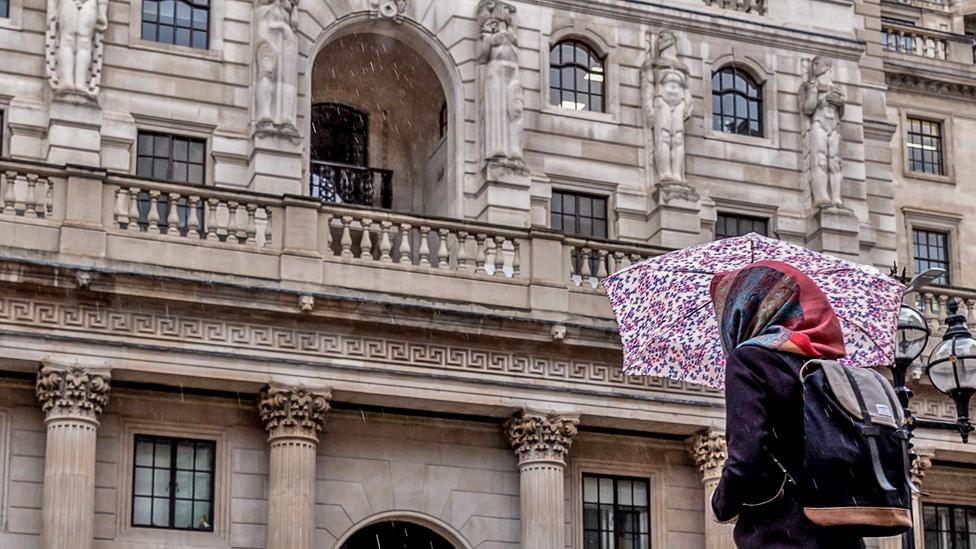Recession: Businesses in Wales adapting to survive amid fears
- Published
- comments
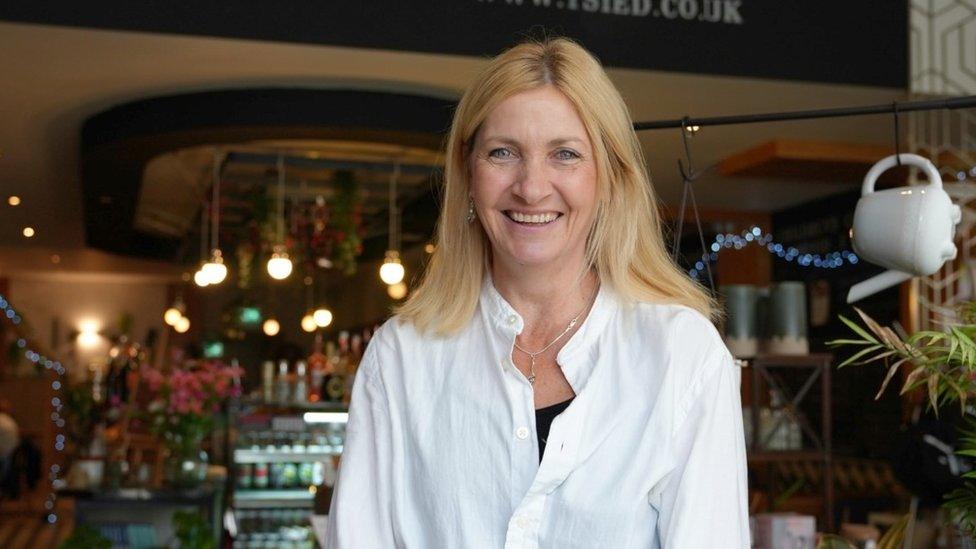
Lisa Fearn hopes her business can weather the current storm
"You have to remain optimistic, that's the only way you're going to survive."
As the UK looks set to fall into a recession by the end of the year, at her Carmarthen coffee shop Lisa Fearn is trying to stay positive.
While her costs are going up, she is reluctant to pass on prices to her customers during the cost of living crisis.
Economy Minister Vaughan Gething has warned a recession would lead to "very difficult times".
The UK economy shrank in August and the Bank of England previously said it expected a recession by the end of the year.
With the bleak news, BBC Wales spoke to small businesses who say they are concerned for the winter months, while talking to investors in large building contracts who say they are looking towards a brighter future.
Ms Fearn, who owns two coffee shops in the town, as well as running a cookery school, said she was lucky to have a lot of loyal customers, but feared people could cut back on classes as people struggled with energy and living costs over the winter.
While the cost of coffee beans from her supplier has gone up, she said she was reluctant to pass on the cost, but this meant things were now "tight".
"If the price of [a cup of] coffee gets to £4, you have to question how many people will want to come through the door," she said.
"You've got to be constantly tweaking the business, pivoting in directions you perhaps haven't planned to go in. You have to be quite fluid," she added.
Ms Fearn hopes the town can weather the economic storm, but not everyone shares her confidence.

What is a recession and what does it mean?
The Bank of England, economists and investment banks are predicting the UK will enter a recession this year, though it is likely to be many months until the data can confirm by how much the economy is shrinking.
A recession is officially defined as two consecutive quarters of negative growth. That means that the economy will have shrunk over the course of six months, rather than grown, when a recession is declared.
Rising prices for food and fuel, increasing mortgage rates and turbulent markets have already added to the uncertainty.
In normal times, the economy generally grows and the benefits can be felt with more productive businesses paying slightly higher wages.
But these are not normal times, and most expert opinion predicts the UK economy will shrink, raising fears that companies will cut back and people will spend less.

Worried for the future
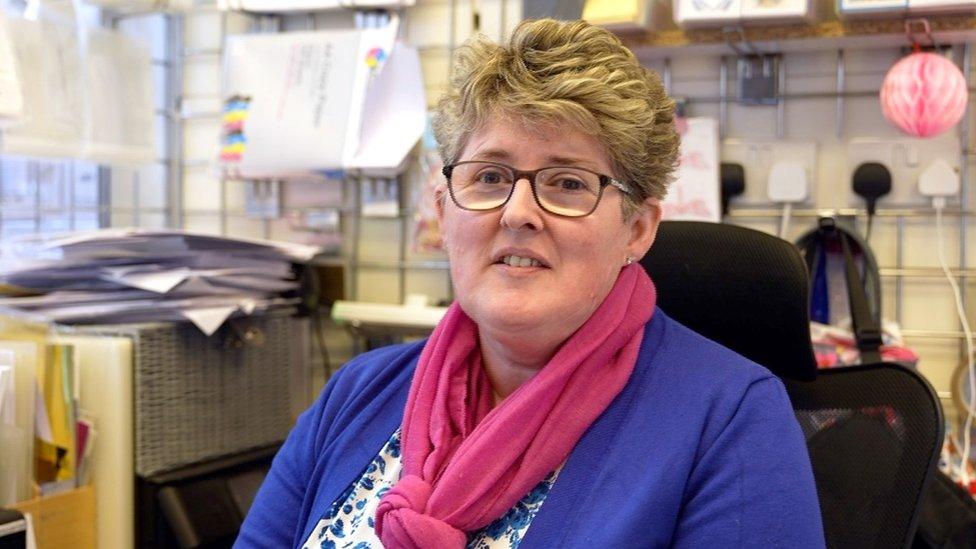
Tracey Jones has noticed a change in customer behaviour this year
Business has been slowing down for months in Carmarthen market, where traders say their customers are spending less.
"Things have changed a lot since Covid, but it's worse since the cost of living increased," Tracey Jones said.
People are spending less in her card shop, and she thinks media coverage of the economy is making it worse.
"It's making us all feel uncertain," she said.
"My own costs have increased in the market with the electric… but I can't raise the cost of my cards because people are only willing to spend a certain amount, there's a limit," she added.
"I'm worried. No, I'm not optimistic. What I'm taking, compared to before Covid, has fallen a lot. What's the future after Christmas? I'm not sure, because it will be even quieter after Christmas."
'Very difficult times' to come

Vaughan Gething - at SPTS in Newport - believes there could be tough times ahead
Welsh government economy minister Vaughan Gething said a recession would lead to "some very difficult times" for individuals and businesses and said the UK government needed to do more to help.
Despite that, Mr Gething said the Welsh government would continue to "look at areas of our economy that can still grow and develop".
Mr Gething said lots of companies continued to be interested in investing in Wales, as he marked the beginning of construction work for the new home of a semiconductor supply-chain company SPTS at a new £903.8k ($100m) building in Newport.
He added: "Part of our challenge is the resources we're able to deploy, that's both about our budget and the significant budgetary challenge we've got.
"It's also about our ability to keep on investing in people, and that still requires money. But the skills that we have on offer, and the people we have on offer, is a big part of those investments that are taking place."
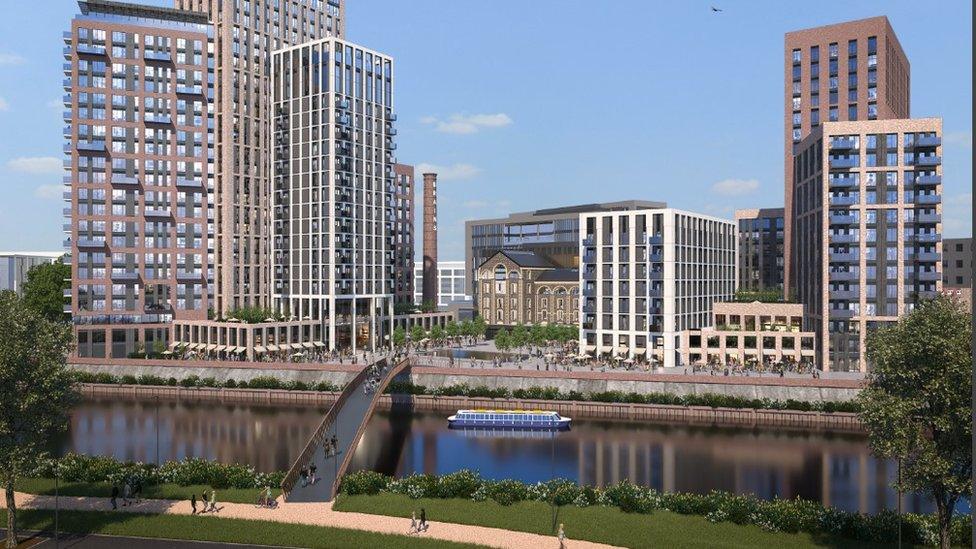
There are ambitious plans to transform the former Brains Brewery site in Cardiff
'Ready to be patient'
Meanwhile in Cardiff investors Legal and General said they had confidence in the future despite the current economic challenges.
The firm has invested £200m from its pension fund to redevelop the former Brains Brewery site into apartments and shops, as part of a £1bn redevelopment in the capital.
Tom Roberts, the Welshman who heads L&G's strategic investment arm, said while they were aware of the current forecasts, they had long-term investment plans.
"We have a real confidence in the future, and we're ready to be patient," he said.
"It's that confidence in the future that has allowed us to invest with such conviction in locations like Cardiff."
But back in Carmarthen, traders are occupied by the short-term impact of the rising cost of doing business.
At her coffee shop, Lisa Fearn clings to her mantra of optimism.
"There's no other way you can survive or succeed," she said.

FIGHT FOR YOUR RIGHTS: The Welsh consumer show fighting for YOUR rights

- Published12 October 2022
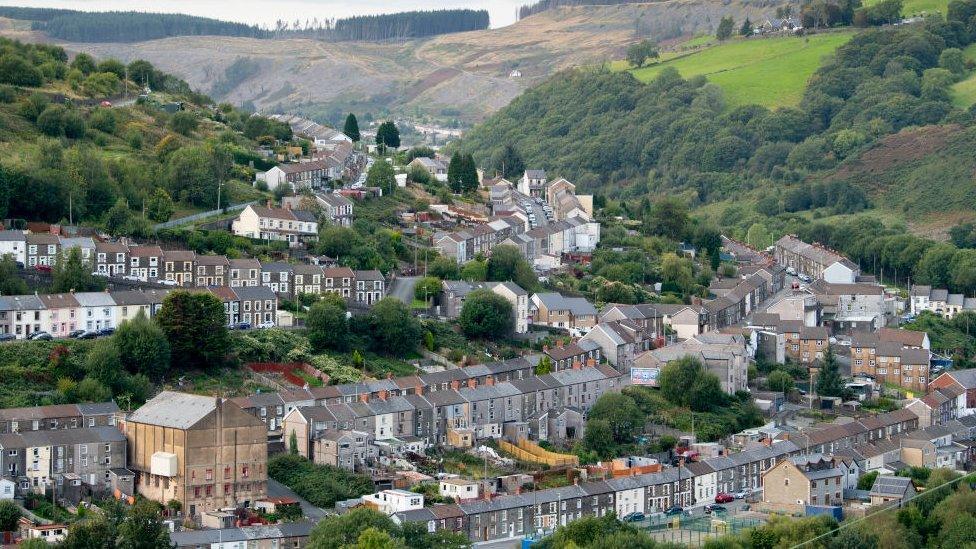
- Published12 October 2022
